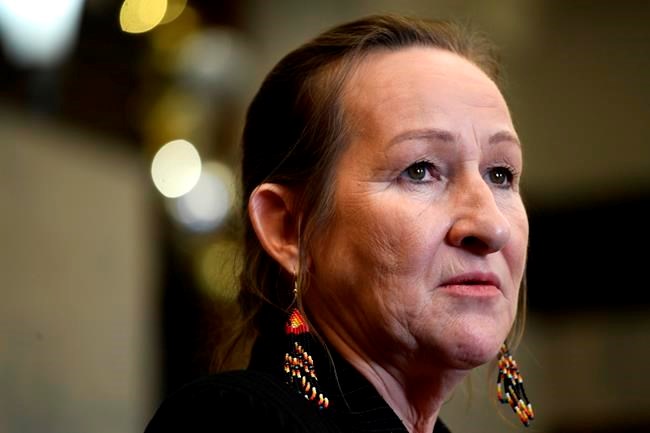INUVIK, N.W.T. — Members of the Northwest Territories legislature unanimously voted Monday to delay an election scheduled for October because of wildfires as the region saw a significant victory in the battle against a blaze that caused tens of thousands of people to flee Yellowknife.
"It's unprecedented times," said Kevin O'Reilly, member for Frame Lake. "It's not going to be possible for us to hold fair elections as originally planned."
O'Reilly noted about 70 per cent of the territory's population is now under evacuation, affecting most of its constituencies. Although fire officials said Monday the fire threatening the territorial capital is now being held, it's still not yet safe for people to return.
The new date for the N.W.T. election will be Nov. 14. The territory had been scheduled to go to the polls on Oct. 3.
The members of the territorial legislature made the decision in an extraordinary session held in Inuvik instead of the territorial capital of Yellowknife, now evacuated by nearby wildfires. With most members attending via Zoom, they rushed through all three readings of the bill in a single sitting.
The legislature also pushed forward an extra $75-million special assessment for firefighting in the territory. The current N.W.T. firefighting budget is about $22 million.
Finance Minister Caroline Wawzonek said the quadrupled firefighting budget should be enough, but cautioned that the $75-million request was based on calculations made 10 days ago.
"Things have changed significantly," she said.
"Hopefully, (the money) will get us through to the end of this fire period. Nothing about this fire season has been typical so far."
Wawzonek acknowledged in the legislature the unanticipated spending will have an effect on the territory's finances. She said firefighting and other expenses as a result of the wildfires will use up the territory's $34-million reserve.
"That will be more than depleted," she said.
Meanwhile, a bit of rain and cooler temperatures over the weekend helped efforts to hold the wildfire located 17 kilometres northwest of Yellowknife, marking a major turn in the fight against the blaze that's been burning since June.
Officials said the change in status means the fire is not expected to spread even as hot temperatures are forecast for the week.
“This is awesome news and we are all really, really happy to hear this,” said Sheila Bassi-Kellett, Yellowknife’s city manager.
“It doesn’t mean the risk is gone yet.”
City and territorial officials are coming up with a plan for people to return to the capital and other areas where fire risk has reduced.
People won't be able to return immediately after the communities are declared safe from fire, said Jay Boast, a territorial government spokesperson. It will be a phased-in approach.
Essential personnel will be brought back to Yellowknife first, Boast said. That will ensure there are basic services, health care, groceries and food when it's time for people to return.
“Let us get out of the woods literally and figuratively and then we can start bringing you back in," Boast said.
This report by The Canadian Press was first published Aug. 28, 2023.
— By Bob Weber in Edmonton and Kelly Geraldine Malone in Saskatoon.
The Canadian Press



